- Home
- Jack London
South Sea Tales Page 2
South Sea Tales Read online
Page 2
“But why don’t it blow?—that’s what I want to know,” Raoul demanded.
“Don’t worry, young man, don’t worry; you’ll get your troubles fast enough.”
Even as Captain Lynch spoke, a great watery mass smote the atoll.
The sea water churned about them three inches deep under the chairs. A low wail of fear went up from the many women. The children, with clasped hands, stared at the immense rollers and cried piteously. Chickens and cats, wading perturbedly in the water, as by common consent, with flight and scramble took refuge on the roof of the captain’s house. A Paumotan, with a litter of new-born puppies in a basket, climbed into a cocoanut tree and twenty feet above the ground made the basket fast. The mother floundered about in the water beneath, whining and yelping.
And still the sun shone brightly and the dead calm continued. They sat and watched the seas and the insane pitching of the Aorai. Captain Lynch gazed at the huge mountains of water sweeping in until he could gaze no more. He covered his face with his hands to shut out the sight; then went into the house.
“Twenty-eight-sixty,” he said quietly when he returned.
In his arm was a coil of small rope. He cut it into two-fathom lengths, giving one to Raoul and, retaining one for himself, distributed the remainder among the women with the advice to pick out a tree and climb.
A light air began to blow out of the northeast, and the fan of it on his cheek seemed to cheer Raoul up. He could see the Aorai trimming her sheets and heading off shore, and he regretted that he was not on her. She would get away at any rate, but as for the atoll—A sea breached across, almost sweeping him off his feet, and he selected a tree. Then he remembered the barometer and ran back to the house. He encountered Captain Lynch on the same errand and together they went in.
“Twenty-eight-twenty,” said the old mariner. “It’s going to be fair hell around here—what was that?”
The air seemed filled with the rush of something. The house quivered and vibrated, and they heard the thrumming of a mighty note of sound. The windows rattled. Two panes crashed; a draught of wind tore in, striking them and making them stagger. The door opposite banged shut, shattering the latch. The white door knob crumbled in fragments to the floor. The room’s walls bulged like a gas balloon in the process of sudden inflation. Then came a new sound like the rattle of musketry, as the spray from a sea struck the wall of the house. Captain Lynch looked at his watch. It was four o’clock. He put on a coat of pilot cloth, unhooked the barometer, and stowed it away in a capacious pocket. Again a sea struck the house, with a heavy thud, and the light building tilted, twisted, quarter around on its foundation, and sank down, its floor at an angle of ten degrees.
Raoul went out first. The wind caught him and whirled him away. He noted that it had hauled around to the east. With a great effort he threw himself on the sand, crouching and holding his own. Captain Lynch, driven like a wisp of straw, sprawled over him. Two of the Aorai’s sailors, leaving a cocoanut tree to which they had been clinging, came to their aid, leaning against the wind at impossible angles and fighting and clawing every inch of the way.
The old man’s joints were stiff and he could not climb, so the sailors, by means of short ends of rope tied together, hoisted him up the trunk, a few feet at a time, till they could make him fast, at the top of the tree, fifty feet from the ground. Raoul passed his length of rope around the base of an adjacent tree and stood looking on. The wind was frightful. He had never dreamed it could blow so hard. A sea breached across the atoll, wetting him to the knees ere it subsided into the lagoon. The sun had disappeared, and a lead-colored twilight settled down. A few drops of rain, driving horizontally, struck him. The impact was like that of leaden pellets. A splash of salt spray struck his face. It was like the slap of a man’s hand. His cheeks stung, and involuntary tears of pain were in his smarting eyes. Several hundred natives had taken to the trees, and he could have laughed at the bunches of human fruit clustering in the tops. Then, being Tahitian-born, he doubled his body at the waist, clasped the trunk of his tree with his hands, pressed the soles of his feet against the near surface of the trunk, and began to walk up the tree. At the top he found two women, two children, and a man. One little girl clasped a housecat in her arms.
From his eyrie he waved his hand to Captain Lynch, and that doughty patriarch waved back. Raoul was appalled at the sky. It had approached much nearer—in fact, it seemed just over his head; and it had turned from lead to black. Many people were still on the ground grouped about the bases of the trees and holding on. Several such clusters were praying, and in one the Mormon missionary was exhorting. A weird sound, rhythmical, faint as the faintest chirp of a far cricket, enduring but for a moment, but in the moment suggesting to him vaguely the thought of heaven and celestial music, came to his ear. He glanced about him and saw, at the base of another tree, a large cluster of people holding on by ropes and by one another. He could see their faces working and their lips moving in unison. No sound came to him, but he knew that they were singing hymns.
Still the wind continued to blow harder. By no conscious process could he measure it, for it had long since passed beyond all his experience of wind; but he knew somehow, nevertheless, that it was blowing harder. Not far away a tree was uprooted, flinging its load of human beings to the ground. A sea washed across the strip of sand, and they were gone. Things were happening quickly. He saw a brown shoulder and a black head silhouetted against the churning white of the lagoon. The next instant that, too, had vanished. Other trees were going, falling and crisscrossing like matches. He was amazed at the power of the wind. His own tree was swaying perilously, one woman was wailing and clutching the little girl, who in turn still hung on to the cat.
The man, holding the other child, touched Raoul’s arm and pointed. He looked and saw the Mormon church careering drunkenly a hundred feet away. It had been torn from its foundations, and wind and sea were heaving and shoving it toward the lagoon. A frightful wall of water caught it, tilted it, and flung it against half a dozen cocoanut trees. The bunches of human fruit fell like ripe cocoanuts. The subsiding wave showed them on the ground, some lying motionless, others squirming and writhing. They reminded him strangely of ants. He was not shocked. He had risen above horror. Quite as a matter of course he noted the succeeding wave sweep the sand clean of the human wreckage. A third wave, more colossal than any he had yet seen, hurled the church into the lagoon, where it floated off into the obscurity to leeward, half-submerged, reminding him for all the world of a Noah’s ark.
He looked for Captain Lynch’s house, and was surprised to find it gone. Things certainly were happening quickly. He noticed that many of the people in the trees that still held had descended to the ground. The wind had yet again increased. His own tree showed that. It no longer swayed or bent over and back. Instead, it remained practically stationary, curved in a rigid angle from the wind and merely vibrating. But the vibration was sickening. It was like that of a tuning-fork or the tongue of a jew’s-harp. It was the rapidity of the vibration that made it so bad. Even though its roots held, it could not stand the strain for long. Something would have to break.
Ah, there was one that had gone. He had not seen it go, but there it stood, the remnant, broken off halfway up the trunk. One did not know what happened unless he saw it. The mere crashing of trees and wails of human despair occupied no place in that mighty volume of sound. He chanced to be looking in Captain Lynch’s direction when it happened. He saw the trunk of the tree, halfway up, splinter and part without noise. The head of the tree, with three sailors of the Aorai and the old captain sailed off over the lagoon. It did not fall to the ground, but drove through the air like a piece of chaff. For a hundred yards he followed its flight, when it struck the water. He strained his eyes, and was sure that he saw Captain Lynch wave farewell.
Raoul did not wait for anything more. He touched the native and made signs to descend to the ground. The man was willing, but his women were paralyzed from terro
r, and he elected to remain with them. Raoul passed his rope around the tree and slid down. A rush of salt water went over his head. He held his breath and clung desperately to the rope. The water subsided, and in the shelter of the trunk he breathed once more. He fastened the rope more securely, and then was put under by another sea. One of the women slid down and joined him, the native remaining by the other woman, the two children, and the cat.
The supercargo had noticed how the groups clinging at the bases of the other trees continually diminished. Now he saw the process work out alongside him. It required all his strength to hold on, and the woman who had joined him was growing weaker. Each time he emerged from a sea he was surprised to find himself still there, and next, surprised to find the woman still there. At last he emerged to find himself alone. He looked up. The top of the tree had gone as well. At half its original height, a splintered end vibrated. He was safe. The roots still held, while the tree had been shorn of its windage. He began to climb up. He was so weak that he went slowly, and sea after sea caught him before he was above them. Then he tied himself to the trunk and stiffened his soul to face the night and he knew not what.
He felt very lonely in the darkness. At times it seemed to him that it was the end of the world and that he was the last one left alive. Still the wind increased. Hour after hour it increased. By what he calculated was eleven o’clock, the wind had become unbelievable. It was a horrible, monstrous thing, a screaming fury, a wall that smote and passed on but that continued to smite and pass on—a wall without end. It seemed to him that he had become light and ethereal; that it was he that was in motion; that he was being driven with inconceivable velocity through unending solidness. The wind was no longer air in motion. It had become substantial as water or quicksilver. He had a feeling that he could reach into it and tear it out in chunks as one might do with the meat in the carcass of a steer; that he could seize hold of the wind and hang on to it as a man might hang on to the face of a cliff.
The wind strangled him. He could not face it and breathe, for it rushed in through his mouth and nostrils, distending his lungs like bladders. At such moments it seemed to him that his body was being packed and swollen with solid earth. Only by pressing his lips to the trunk of the tree could he breathe. Also, the ceaseless impact of the wind exhausted him. Body and brain became wearied. He no longer observed, no longer thought, and was but semiconscious. One idea constituted his consciousness: SO THIS WAS A HURRICANE. That one idea persisted irregularly. It was like a feeble flame that flickered occasionally. From a state of stupor he would return to it—SO THIS WAS A HURRICANE. Then he would go off into another stupor.
The height of the hurricane endured from eleven at night till three in the morning, and it was at eleven that the tree in which clung Mapuhi and his women snapped off. Mapuhi rose to the surface of the lagoon, still clutching his daughter Ngakura. Only a South Sea islander could have lived in such a driving smother. The pandanus tree, to which he attached himself, turned over and over in the froth and churn; and it was only by holding on at times and waiting, and at other times shifting his grips rapidly, that he was able to get his head and Ngakura’s to the surface at intervals sufficiently near together to keep the breath in them. But the air was mostly water, what with flying spray and sheeted rain that poured along at right angles to the perpendicular.
It was ten miles across the lagoon to the farther ring of sand. Here, tossing tree trunks, timbers, wrecks of cutters, and wreckage of houses, killed nine out of ten of the miserable beings who survived the passage of the lagoon. Half-drowned, exhausted, they were hurled into this mad mortar of the elements and battered into formless flesh. But Mapuhi was fortunate. His chance was the one in ten; it fell to him by the freakage of fate. He emerged upon the sand, bleeding from a score of wounds.
Ngakura’s left arm was broken; the fingers of her right hand were crushed; and cheek and forehead were laid open to the bone. He clutched a tree that yet stood, and clung on, holding the girl and sobbing for air, while the waters of the lagoon washed by knee-high and at times waist-high.
At three in the morning the backbone of the hurricane broke. By five no more than a stiff breeze was blowing. And by six it was dead calm and the sun was shining. The sea had gone down. On the yet restless edge of the lagoon, Mapuhi saw the broken bodies of those that had failed in the landing. Undoubtedly Tefara and Nauri were among them. He went along the beach examining them, and came upon his wife, lying half in and half out of the water. He sat down and wept, making harsh animal noises after the manner of primitive grief. Then she stirred uneasily, and groaned. He looked more closely. Not only was she alive, but she was uninjured. She was merely sleeping. Hers also had been the one chance in ten.
Of the twelve hundred alive the night before but three hundred remained. The Mormon missionary and a gendarme made the census. The lagoon was cluttered with corpses. Not a house nor a hut was standing. In the whole atoll not two stones remained one upon another. One in fifty of the cocoanut palms still stood, and they were wrecks, while on not one of them remained a single nut.
There was no fresh water. The shallow wells that caught the surface seepage of the rain were filled with salt. Out of the lagoon a few soaked bags of flour were recovered. The survivors cut the hearts out of the fallen cocoanut trees and ate them. Here and there they crawled into tiny hutches, made by hollowing out the sand and covering over with fragments of metal roofing. The missionary made a crude still, but he could not distill water for three hundred persons. By the end of the second day, Raoul, taking a bath in the lagoon, discovered that his thirst was somewhat relieved. He cried out the news, and thereupon three hundred men, women, and children could have been seen, standing up to their necks in the lagoon and trying to drink water in through their skins. Their dead floated about them, or were stepped upon where they still lay upon the bottom. On the third day the people buried their dead and sat down to wait for the rescue steamers.
In the meantime, Nauri, torn from her family by the hurricane, had been swept away on an adventure of her own. Clinging to a rough plank that wounded and bruised her and that filled her body with splinters, she was thrown clear over the atoll and carried away to sea. Here, under the amazing buffets of mountains of water, she lost her plank. She was an old woman nearly sixty; but she was Paumotan-born, and she had never been out of sight of the sea in her life. Swimming in the darkness, strangling, suffocating, fighting for air, she was struck a heavy blow on the shoulder by a cocoanut. On the instant her plan was formed, and she seized the nut. In the next hour she captured seven more. Tied together, they formed a life-buoy that preserved her life while at the same time it threatened to pound her to a jelly. She was a fat woman, and she bruised easily; but she had had experience of hurricanes, and while she prayed to her shark god for protection from sharks, she waited for the wind to break. But at three o’clock she was in such a stupor that she did not know. Nor did she know at six o’clock when the dead calm settled down. She was shocked into consciousness when she was thrown upon the sand. She dug in with raw and bleeding hands and feet and clawed against the backwash until she was beyond the reach of the waves.
She knew where she was. This land could be no other than the tiny islet of Takokota. It had no lagoon. No one lived upon it.
Hikueru was fifteen miles away. She could not see Hikueru, but she knew that it lay to the south. The days went by, and she lived on the cocoanuts that had kept her afloat. They supplied her with drinking water and with food. But she did not drink all she wanted, nor eat all she wanted. Rescue was problematical. She saw the smoke of the rescue steamers on the horizon, but what steamer could be expected to come to lonely, uninhabited Takokota?
From the first she was tormented by corpses. The sea persisted in flinging them upon her bit of sand, and she persisted, until her strength failed, in thrusting them back into the sea where the sharks tore at them and devoured them. When her strength failed, the bodies festooned her beach with ghastly horror, and she wi
thdrew from them as far as she could, which was not far.
By the tenth day her last cocoanut was gone, and she was shrivelling from thirst. She dragged herself along the sand, looking for cocoanuts. It was strange that so many bodies floated up, and no nuts. Surely, there were more cocoanuts afloat than dead men! She gave up at last, and lay exhausted. The end had come. Nothing remained but to wait for death.
Coming out of a stupor, she became slowly aware that she was gazing at a patch of sandy-red hair on the head of a corpse. The sea flung the body toward her, then drew it back. It turned over, and she saw that it had no face. Yet there was something familiar about that patch of sandy-red hair. An hour passed. She did not exert herself to make the identification. She was waiting to die, and it mattered little to her what man that thing of horror once might have been.
But at the end of the hour she sat up slowly and stared at the corpse. An unusually large wave had thrown it beyond the reach of the lesser waves. Yes, she was right; that patch of red hair could belong to but one man in the Paumotus. It was Levy, the German Jew, the man who had bought the pearl and carried it away on the Hira. Well, one thing was evident: The Hira had been lost. The pearl buyer’s god of fishermen and thieves had gone back on him.
She crawled down to the dead man. His shirt had been torn away, and she could see the leather money belt about his waist. She held her breath and tugged at the buckles. They gave easier than she had expected, and she crawled hurriedly away across the sand, dragging the belt after her. Pocket after pocket she unbuckled in the belt and found empty. Where could he have put it? In the last pocket of all she found it, the first and only pearl he had bought on the voyage. She crawled a few feet farther, to escape the pestilence of the belt, and examined the pearl. It was the one Mapuhi had found and been robbed of by Toriki. She weighed it in her hand and rolled it back and forth caressingly. But in it she saw no intrinsic beauty. What she did see was the house Mapuhi and Tefara and she had builded so carefully in their minds. Each time she looked at the pearl she saw the house in all its details, including the octagon-drop-clock on the wall. That was something to live for.

 The Son of the Wolf
The Son of the Wolf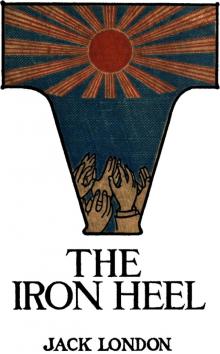 The Iron Heel
The Iron Heel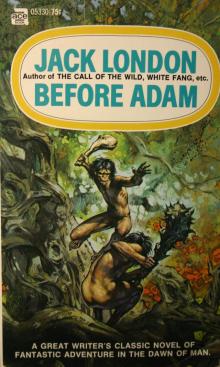 Before Adam
Before Adam Smoke Bellew
Smoke Bellew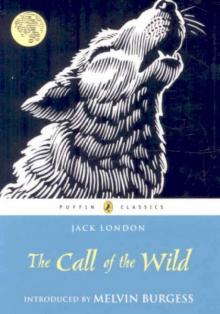 The Call of the Wild
The Call of the Wild The Valley of the Moon Jack London
The Valley of the Moon Jack London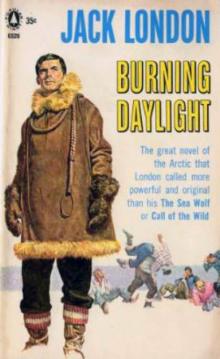 Burning Daylight
Burning Daylight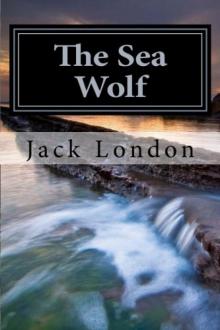 The Sea Wolf
The Sea Wolf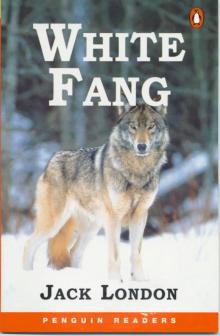 White Fang
White Fang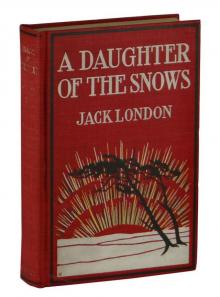 A Daughter of the Snows
A Daughter of the Snows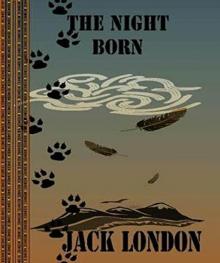 The Night-Born
The Night-Born A Son Of The Sun
A Son Of The Sun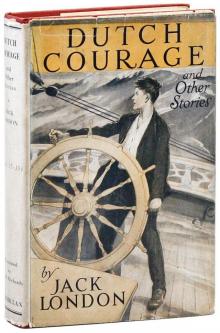 Dutch Courage and Other Stories
Dutch Courage and Other Stories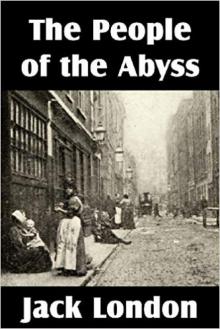 The People of the Abyss
The People of the Abyss Michael, Brother of Jerry
Michael, Brother of Jerry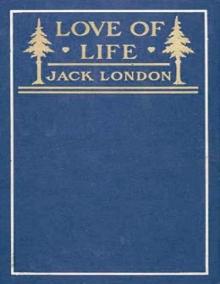 Love of Life, and Other Stories
Love of Life, and Other Stories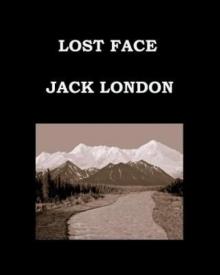 Lost Face
Lost Face The Road
The Road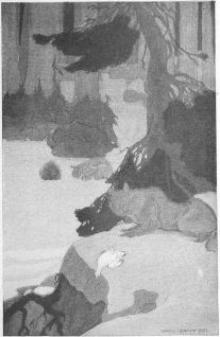 Love of Life
Love of Life The Turtles of Tasman
The Turtles of Tasman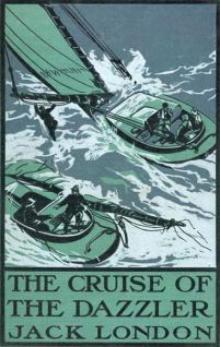 The Cruise of The Dazzler
The Cruise of The Dazzler The Heathen
The Heathen The Scab
The Scab The Faith of Men
The Faith of Men Adventure
Adventure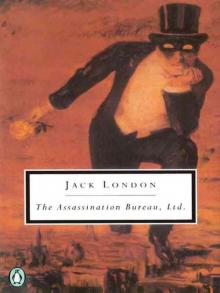 The Assassination Bureau, Ltd.
The Assassination Bureau, Ltd.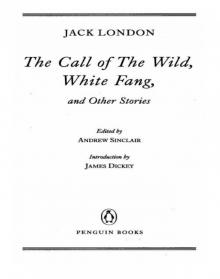 The Call of the Wild, White Fang, and Other Stories
The Call of the Wild, White Fang, and Other Stories The Call of the Wild and Selected Stories
The Call of the Wild and Selected Stories Jerry of the Islands
Jerry of the Islands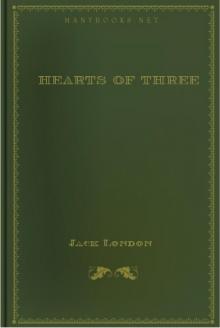 Hearts of Three
Hearts of Three The House of Pride
The House of Pride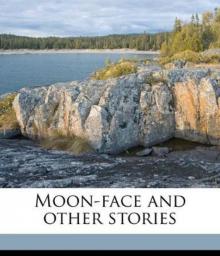 Moon-Face and Other Stories
Moon-Face and Other Stories Children of the Frost
Children of the Frost South Sea Tales
South Sea Tales The Strength of the Strong
The Strength of the Strong The Jacket (The Star-Rover)
The Jacket (The Star-Rover) The Little Lady of the Big House
The Little Lady of the Big House John Barleycorn
John Barleycorn ADaugter of Snows
ADaugter of Snows The Mutiny of the Elsinore
The Mutiny of the Elsinore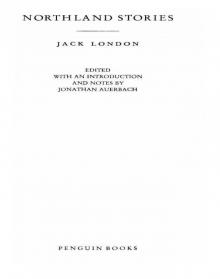 Northland Stories
Northland Stories Tales of the Fish Patrol
Tales of the Fish Patrol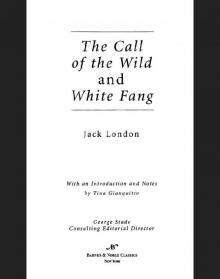 Call of the Wild and White Fang (Barnes & Noble Classics Series)
Call of the Wild and White Fang (Barnes & Noble Classics Series) The Valley of the Moon
The Valley of the Moon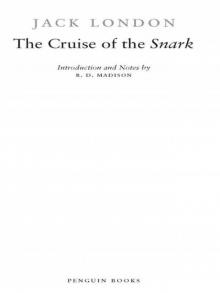 The Cruise of the Snark
The Cruise of the Snark The Game
The Game An Autobiography of Jack London
An Autobiography of Jack London